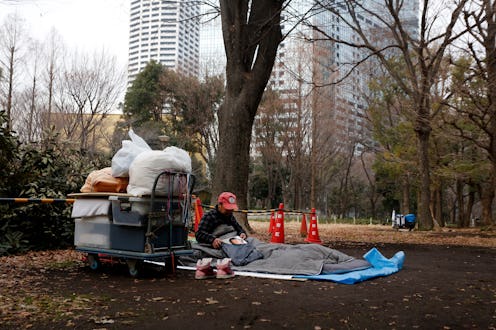News
Study: 4 In 5 Americans Have Neared Poverty
So much for the American Dream, eh?
New statistics from the Associated Press reveal that 80 percent of Americans today have struggled with near-poverty, perpetual joblessness, and/or reliance on welfare support. The staggering numbers come in as President Obama tries to refocus on reforming and reorganizing the economy.
The president has indicated in recent speeches that his top priority is to patch up the ailing post-recession economy, saying he desperately wants to "rebuild ladders of opportunity." According to these numbers, those ladders are looking awfully short, as the gap widens between the very rich and those who struggle financially.
The AP's survey data indicates that the widespread lack of well-paid jobs and social mobility might be due to three factors: the discrepancy between rich and poor; the loss of well-paying manufacturing jobs; and a far more globalized U.S. economy.
Whites in the U.S. have seen more threat to their economic stability than they ever have, with economic insecurity plaguing more than three-quarters of the demographic. The good news is that there's less racial disparity in terms of who's earning what — though naysayers have pointed out that this might be because hardly anyone's earning much at all. Meanwhile, the millionaire population in America grows larger each year. (And even they aren't too pleased with the toll the economy has taken on their finances: apparently, only a quarter of millionaires self-describe as "wealthy.")
If the current trend continues, it looks like 85 percent of adults will face near-poverty by 2030. Some academics are noting that a big problem is that poverty level is perceived as a minority issue when it's anything but. Economist Mark Rank, whose long-term findings come out next year, puts it this way:
Poverty is no longer an issue of `them', it's an issue of `us'. Only when poverty is thought of as a mainstream event, rather than a fringe experience that just affects blacks and Hispanics, can we really begin to build broader support for programs that lift people in need.
